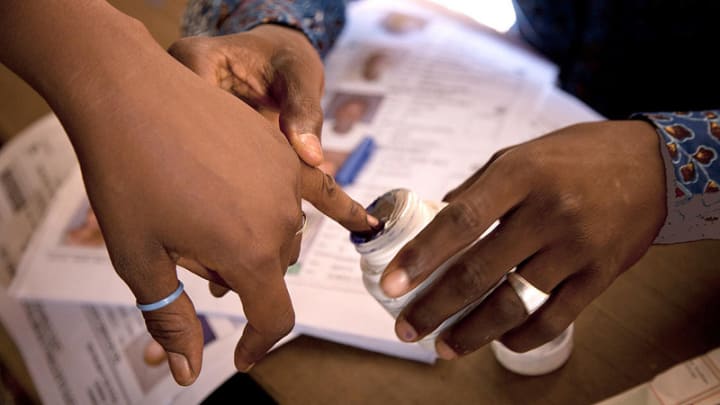
Survey research conducted by Ipsos on the U.N.’s recently unveiled sustainable development goals makes one thing very plain regarding democracy, rights and governance promotion: Citizens around the world believe it is critical to expand rights and justice and more meaningfully invest in democratic governance.
The 16th SDG articulates the U.N.’s commitment to helping the world’s citizens realize this ambition. Vast majorities of respondents to the Ipsos survey from every country and region believe the advancement of democratic governance to be either a very important or somewhat important goal. Nearly half of respondents (49 percent) believe it to be very important and that number increases in countries that lack sufficiently democratic institutions. For instance, 83 percent of respondents in the United Arab Emirates believe this goal to be very important and 70 percent believe it to be very important in Turkey and South Africa. Perhaps most notably, 74 percent of respondents throughout the Middle East believe it to be a very important goal.
These data are encouraging, but it is critical to recognize that public support for democratic reform, while an important prerequisite, is far from sufficient. Will for reform must also exist on the supply side. DRG promotion, perhaps more than any other sphere of development, is dependent on and hindered by the political will of the elites who most benefit from corrupt and autocratic systems of governance. Expanding access to justice, rights and freedoms is extremely challenging if the ruling class perceives it as working against its interests. Their perception is that such rights threaten their ability to govern without restriction.
See more from this series:
► Rallying American support for foreign aid
► The SDGs: How will we know if we achieved them?
► Are the global goals within reach? When you invest in women, yes
► Promoting healthy lives, access to water and well-being for all
► The hard questions in education: Why and how?
► Where should #globaldev community focus aid to end hunger?
Given the importance of genuine democratic governance as a foundation for sustainable development in other spheres, finding ways to promote democratic reform in an environment with deficient political will is crucial. All too often, transitioning governments will adopt reforms on paper that satisfy the international community in the short run and then simply never work to implement them. By adopting this SDG, the international community has a responsibility to not simply measure the progress of countries on rights and governance by declarations, but by reality. Do citizens actually enjoy the freedoms that their governments claim to respect? Further, if the development community does not work to ensure that political elites pursue real reform, sustainability in every sphere of development will be jeopardized.
In countries where democratic reform is needed and impeded by political elites, the international development community should focus on interventions designed to change the incentive structures. Development programs in such countries should not focus on institutional actors who possess no will to reform as primary targets. Instead, donors and practitioners should rely on political economy analysis to help determine where avenues for meaningful engagement might exist and to identify reformers at different levels of government. This political economy analysis should identify those issues which might serve as pressure points for political activity, tactics for advocacy that might be best-received by the ruling elites, and areas of advocacy in which existing civil society might have a competitive advantage.
The development community must use that information to empower citizens, and the civil society organizations that represent them, to better organize and lobby governments. Development programs should work with the media to monitor and publicize government activity and provide citizens with greater access to the independent information necessary to develop informed opinions. An empowered citizenry well-represented by civil society will be far more capable of pressuring their leaders to implement reforms than an international institution. And because interventions are built around improved citizen capacity to advocate for their interests, they will sustain themselves longer than top-down interventions aimed at changing laws or political behavior directly.
Donors are beginning to favor programs that focus on demand-side DRG promotion that employ grass-roots tactics better suited to working around insufficient political will over traditional top-down approaches. The anticipated Liberia Accountability and Voice Initiative is one such example. LAVI is designed to improve the capacity of Liberia’s civil society sector, as distinct from individual civil society organizations. The program will involve capacity building for individuals CSOs, but it is also focused on identifying and fostering local resources for advocacy, such as statisticians, organizers, trainers and political consultants, allowing local advocacy organizations to draw from expertise within Liberia and build valuable partnerships for advocacy. In addition to promoting sustainability, this approach focuses on empowering citizens to advocate directly for their interests, which is critical in environment with limited or closing political space.
Like all development work, there are limits to this approach. It is not likely to bring change swiftly, nor can it be expected immediately in every sector of governance. Because it is dependent on citizen activism, the interests of any given citizenry will determine which reforms are catalyzed. Despite these limitations, a cogent approach that incorporates both supply and demand-side interventions will allow DRG practitioners to capitalize on the kind of public support for reform demonstrated by Ipsos’ survey within political environments that would otherwise prohibit the advancement of democratic freedoms.
Visit the Ipsos news center to see the data and other articles in this series. Join the Devex community and access more in-depth analysis, breaking news and business advice — and a host of other services — on international development, humanitarian aid and global health.




